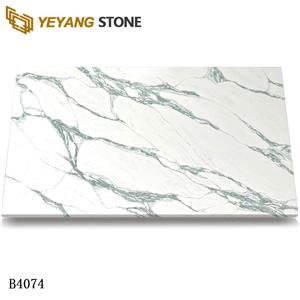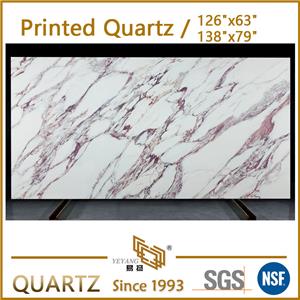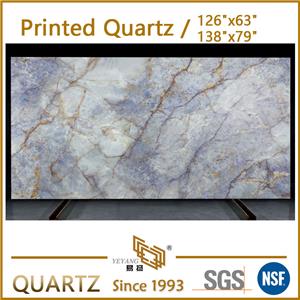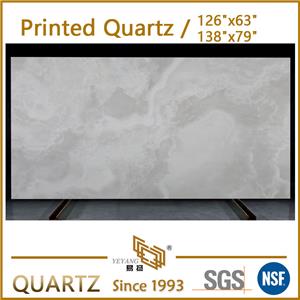Which Quartz Stone Slabs Are Best? Follow These 5 Dos and 5 Don’ts Before Buying
Which Quartz Stone Slabs Are Best? Follow These 5 Dos and 5 Don’ts Before Buying
Many homeowners still associate quartz stone slabssolely with kitchen countertops. In reality, quartz stone is a highly versatile material used far beyond cooking spaces—covering flooring, walls, commercial interiors, laboratories, and more. If you want a durable, stylish, and low-maintenance surface, choosing the right quartz matters more than you think.
This guide breaks down the key advantages of quartz stone, and more importantly, the 5 things to choose and 5 things to avoid when selecting a quality quartz countertop or any quartz-based application.

1. Key Advantages of Quartz Stone
Performance Comparison: Quartz Stone vs. Other Decorative Materials
| Performance Criteria | Engineered Quartz Stone | Inorganic Artificial Stone | Natural Marble |
|---|---|---|---|
| Formaldehyde Emission | None | None | None |
| Radiation | None | None | Low, naturally occurring |
| Stain Resistance | Excellent (non-porous surface) | Good | Poor to Moderate (porous, requires sealing) |
| Mohs Hardness | 6–7 (high) | 4–5 (medium) | 3–4 (low to medium) |
| Toughness | High (impact-resistant) | Medium | Low (brittle, prone to cracking) |
| Corrosion Resistance | Excellent | Good | Weak (sensitive to acids and alkalis) |
| Decorative Appearance | Rich, consistent, wide design options | Moderate | Excellent natural beauty, unique veining |
| Environmental Performance | High (non-toxic, eco-friendly) | High | Moderate (requires quarrying, surface treatment) |
Outstanding Wear Resistance
Quartz stone reaches up to Mohs 6.5, resisting scratches from daily use. Its durability makes it suitable for countertops, flooring, and other high-traffic areas.
Non-Porous & Easy to Clean
The dense, non-porous structure prevents liquid absorption. Most stains can be wiped away easily, making it ideal for kitchens and bathrooms.
Safe & Highly Resistant to Acids/Alkalis
Quartz stone contains no harmful substances and allows direct food contact. Its chemical resistance supports use in hospitals, labs, and hygiene-focused spaces.
2. How to Choose Quality Quartz Stone (5 Dos & 5 Don’ts)
1) Choose Pure Color or Fine Particles — Avoid Large, Single-Color Grains
When looking at quartz stone slabs, the first thing buyers notice is the appearance and particle size.
Pure-color surfaces and fine-grain quartz generally indicate better refinement and higher purity. High-quality quartz uses natural quartz sand that is ground and polished multiple times.
Large-grain surfaces often reflect coarser processing, leading to poorer texture and sometimes lower density.
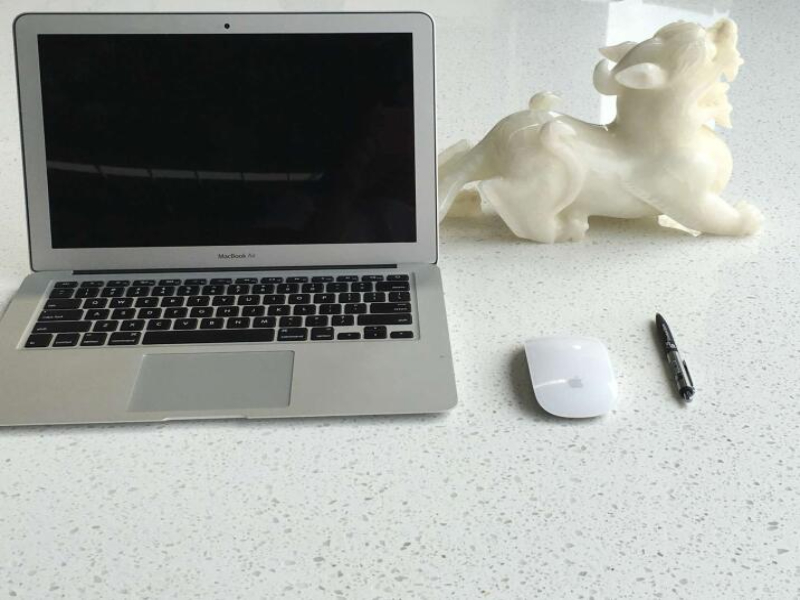
2) Choose Real Quartz Stone — Avoid Fake or Low-Grade Alternatives
Some low-cost ''quartz'' products on the market are made using resin mixed with non-quartz fillers, which significantly weakens heat resistance and wear resistance.
How to identify real quartz stone:
Scratch the surface with a metal key
Real quartz stone → black marks appear but can be wiped away
Fake quartz stone → white powder is produced
Heat the sample with a lighter
Yellow stains that cannot be removed = poor quality
Clean surface after wiping = real, heat-resistant quartz
(Yeyang Calacatta Quartz Stone Slab NT421)
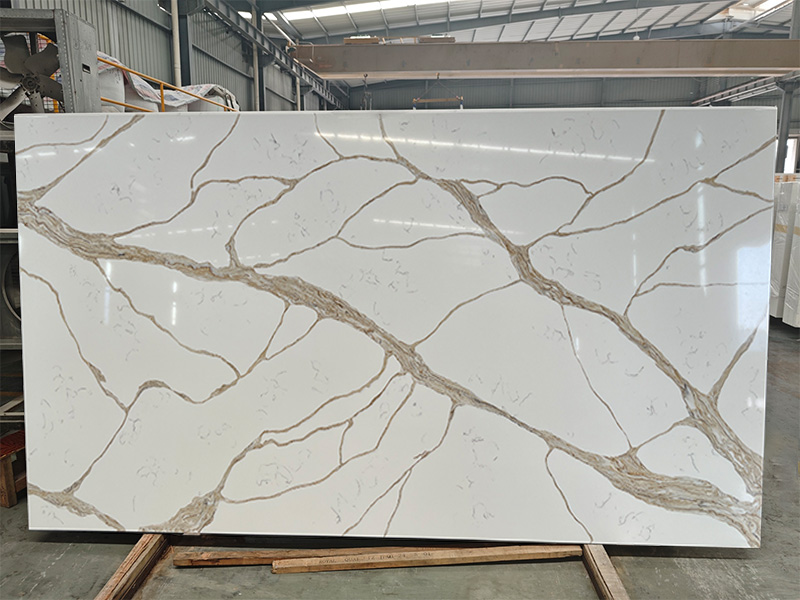
The surface of a high-quality quartz slab should be free of obvious flaws, smooth and flat, with uniform color and excellent reflective performance.
3) Choose High-Density Quartz — Avoid Low-Density Slabs Prone to Staining
Low-density quartz slabs have insufficient quartz crystal content. As a result, they show:
Color penetration
Poor oil resistance
Weaker corrosion resistance
Simple test:
Apply a small amount of white vinegar.
High-density quartz: no bubbles
Low-density quartz: bubbles appear due to excessive calcium reacting with acid
4) Choose Strong Stain Resistance — Avoid Surfaces That Absorb Color
Quartz is known for stain resistance, but quality varies.
Test options:
Draw marks with a marker
Drop soy sauce on the surface
If stains cannot be wiped clean after drying, the material’s stain resistance is inadequate and should be avoided.
5) Choose 2.0 cm Thickness — Avoid Any Slab Below 1.5 cm
Thickness is a major factor in durability.
2.0 cm or above: stable, durable, less prone to cracking
Below 1.5 cm: insufficient mechanical strength, risk of breaking under impact or even chopping food
For quartz countertops especially, never compromise on thickness.
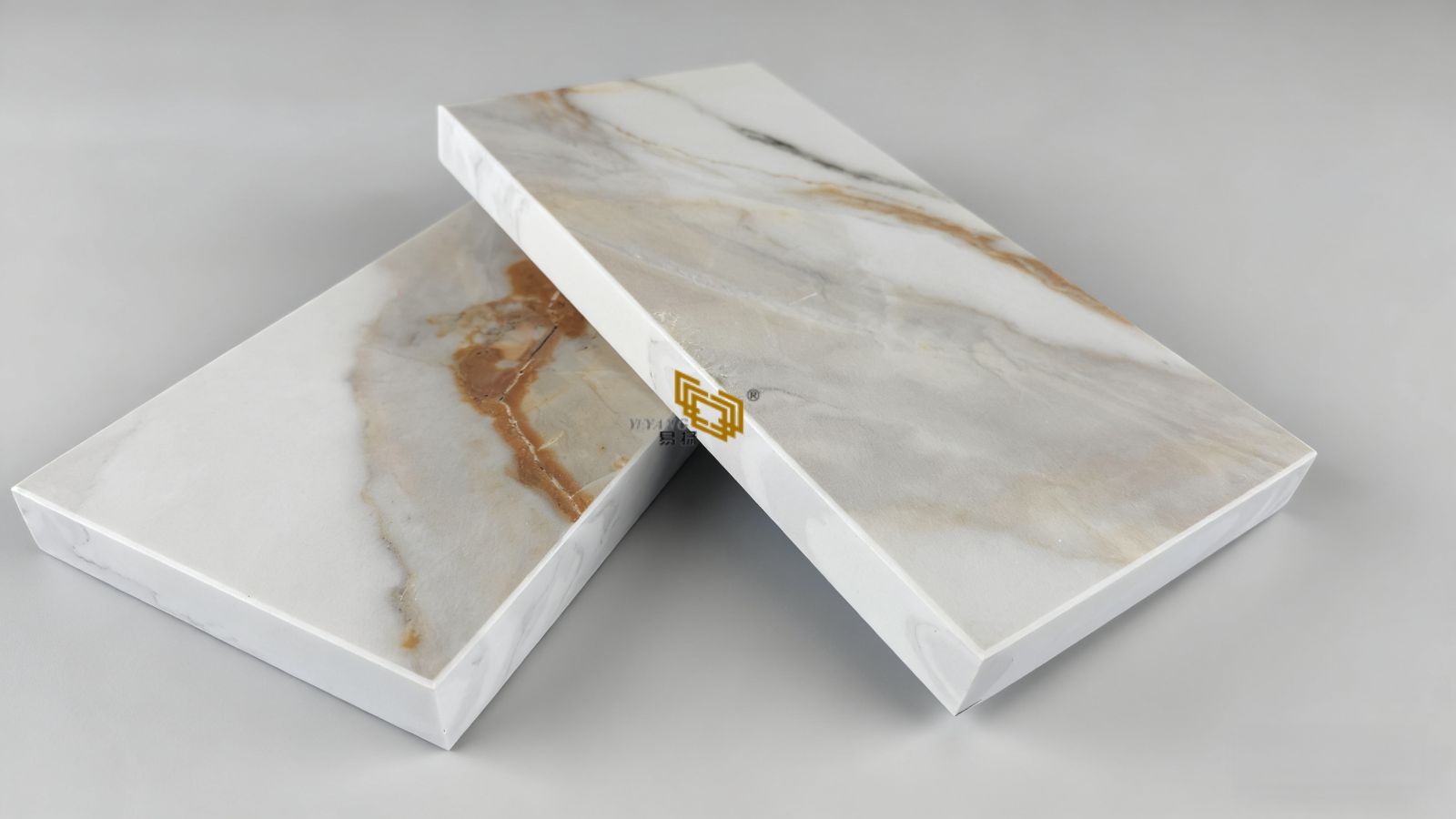
Choosing the best quartz stone slabs requires more than just comparing colors. Density, particle refinement, stain resistance, authenticity, and slab thickness all determine whether your quartz surface will last for years.
High-quality quartz stone not only brings beauty and durability to your home but also ensures long-term performance in kitchens, bathrooms, commercial spaces, and laboratories.
If you need professional guidance or access to premium-quality quartz products, feel free to contact us.

